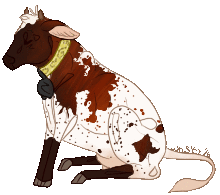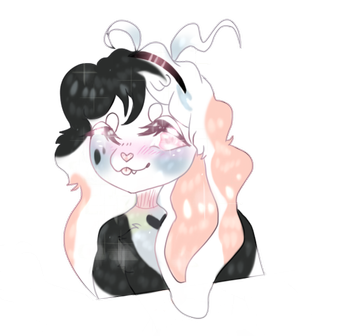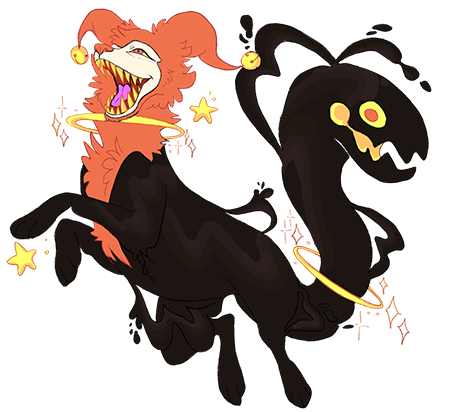█
█
█
█
█
█
█
█
█
█
█
█
█
█
█
█
█
█
█
█
█
█
█
█
█
█
█
█
█
█
█
█
█
█
█
█
█
█
█
█
█
█
█
█
█
█
█
█
█
█
█
█
█
█
█
█
█
█
█
█
█
█
█
█
█
█
█
█
█
█
█
█
█
█
█
█
█
█
█
█
█
█
█
█
█
█
█
█
█
█
█
█
█
█
█
█
█
█
█
▌
▌
▌
▌
▌
▌
▌
▌
▌
▌
▌
▌
▌
▌
▌
▌
▌
▌
▌
▌
▌
▌
▌
▌
▌
▌
▌
▌
▌
▌
▌
▌
▌
▌
▌
▌
▌
▌
▌
▌
▌
▌
▌
▌
▌
▌
▌
▌
▌
▌
▌
▌
▌
▌
▌
▌
▌
▌
▌
▌
▌
▌
▌
▌
▌
▌
▌
▌
▌
▌
▌
▌
▌
▌
▌
▌
▌
▌
▌
▌
▌
▌
▌
▌
▌
▌
▌
▌
▌
▌
▌
▌
▌
▌
▌
▌
▌
▌
▌
◤
________________________________________________________________________ ◥

◣
________________________________________________________________________◢
╠════════════════════════════╣→ [ ] • [ ] • [ ] • [ ] • [ ] ←╠═══════════════╣___________________________________________________
▂▂▂▂▂▂▂▂▂▂▂▂▂▂▂▂▂▂▂▂▂▂▂▂▂▂▂
This Mippi's real name would be Christopher, though he would rather be named Tigger, and even has a Tigger plushie. He become obsessed with the actual 'Tigger character once he first laid eyes on the cartoon. He even picked up a few of Tigger's habits. Such as, the once mentioned about the fictional character Tigger below. Tiggs and Tig-Tig are common nicknames.
"A fictional character from the Winnie-The-Pooh stories, best known for resembling a tiger, but with a tendency for bouncing around on his tail. He was voiced primarily by Paul Winchell, and best known for his laugh as well as his song, 'The Wonderful Thing About Tiggers.' Despite the fact that he tends to refer to himself in the third person sometimes, as well as in a plural tense, his theme song claims that he's the only one.
Tigger <upon greeting Pooh for the first time>: Hello, I'm Tigger!
Pooh: Oh, you scared me!
Tigger: Uh, sure I did! Hoo-hoo-hoo-hoo! Everyone's scared of Tiggers!"
This Mippi is a male. He could pass for a female I suppose, though I feel more comfortable making him a male. c:
Six. He would grow, eventually of course, but when he finally does age, I see him being a very cocky male getting all the ladies because he's 'cute' Cx I would like to keep him young for awhile though. Young, and innocent. <3
F A V O R I T E - S N A C K ?
"Ants on a log." No, not actual ants on a log, silly. Ants on a log is celery smothered in Peanut utter with raisins on top. He developed this idea after his mother told him he couldn't eat anymore peanut-butter smothered raisins unless he ate something healthy, so he decided to try his attempt with celery, though he finds that it worked well with apples too. Ants on a dead leaf anyone?
"If at first you don't succeed, destroy the evidence.."
___________________________________________________
◤________________________________________________________________________ ◥
M Y - P E R S O N A L I T Y ?
-
Tigger is a young, playful, charismatic six year old who never fails to make you laugh. Tigger will fuss and squirm when you hold them up to your shoulder and is just fine when you turn him away from you so he can watch the world around him. He's the kid who grab your attention the minute they come home from school or child care by shoving their papers into your face. He needs to talk and he needs to talk now! Too much time alone can leave Tigger drained and irritable. He'll clamor to bring a friend home from school or complain he's bored when there's no one to play with. You may worry about his self-esteem time to time because he rarely chooses to play by himself unless he has a cardboard box. But even then he would prefer company- he's just really playful. When he's upset, he don't want to be alone. He'll follow you around, touch you, and move right into your space. If you want him to take a break, he will – but only if you go with him, which often isn't what you need at all. Ask them how he feels, and he'll have an immediate answer, which may change the more he talks and "thinks" about it. Basic sports equipment, such as footballs, jump ropes, and pogo sticks, are ideal for Tigger- who craves physical stimulation. Tigger's parents swear that a big garden trampoline is a worthwhile investment for such purposes, though he prefers games from time to time. Don't forget that novelty is also stimulating for Tigger. His mother put together a filing box of special projects for such times—this could contain recipes of things her and Tigger could cook together, instructions for a treasure hunt, or even a challenge to make three musical instruments out of household objects. Many books are available as well, but again- Tigger prefers games. While convalescing, Tigger is given access to a special box of treasures assembled by his mother specifically to keep him entertaines. The box contains a series of intriguing but everyday items: a beautiful shell, a paper fan, a miniature doll. Each treasure is individually wrapped and packed in a compartment of a special chest. The reason why the box keeps the passing times heroine so happily occupied is because it comes out only on rare occasions. Consequently, its contents retain an aura of special fascination. The principle of holding back a selection of toys or games that are brought out only on selective occasions is a good one. It can provide a really useful resource for Tigger when bored or in need of stimulation. Many of today's children are completely deluged with gifts at Christmas and birthdays. Whereas Tigger's enjoyment impact by staggering access to him through the year?
A few of Tigger's traits;
-He wants to do everything in a BIG way
-He has LOTS of energy
-He loves the outdoors
-He loves animals
-He loves to participate in sports and other physical activities
-He's extremely aware of his environment
-He has a strong aesthetic appreciation for beauty
-He needs to be constantly busy, and usually have several projects going on
-He is are usually artistic when in the mood
-He loves to be the center of attention
-He's very practical and grounded in reality
Potential Strengths
-He's generally cheerful and almost always in a good mood
-He's usually popular and well-liked by almost everyone
-He picks up on other people's behaviors and attitudes more quickly than any other type
-He gets a great deal of enjoyment out of life, and treats life like a big party
-Very good memory for details
-Extremely observant - the most observant
-Extremely generous
-Like and accept almost everyone
Potential Weaknesses
-General acceptance of everyone may make them poor judges of character
-Tend to be materialistic
-Cannot see the big picture in most situations
-Tends to be thrill-seekers
-May be overly loud and boisterous
-Very impulsive
-Does not have the ability to use his intuition at all, or extrapolate anything from one situation into another
-Frequently does not follow through on tasks or plans
-Have a difficult time taking anything seriously
-Lives in the present moment, and have difficulty foreseeing the consequences to their actions
Tigger has ESP.
"ESP children require explicit instructions when performing a task. They need to have the expectations for the task clearly defined before they can understand what they are supposed to do. Loosely defined assignments, where the outcome is unclear or extremely individualized, will not sit well with the ESP, and they will not perform these kinds of tasks well unless they get clear instructions on how to do them from some source. ESPs learn best with lots of hands-on experience. When shown how to do something, they are usually able to pick it up quite easily. Physically, ESPs are usually very coordinated and agile. They can learn new physical tasks with great speed and accuracy. ESPs have a short attention span. They are easily distracted by just about anything that occurs in their environment. They are also extremely social, and often get distracted talking and interacting with other children. An ESPs attention will be retained longer if they are allowed to interact with their environment while learning. They do well with team activities, or when allowed to work with other kids. ESP children have a tremendous amount of energy, and are very physically oriented. They can't sit still for more than a few minutes before they start to wiggle around and get very bored. Working with other kids may help combat this problem, or a teacher could try some alternative lesson plans that include combining physical activity with learning. An example of this might be reading a poem and acting it out at the same time. In general, ESP children need to have a lot of new mental and physical stimulation. They are extremely curious and observant, and seek new experiences constantly. They are extremely aware of their immediate environment, and cannot ignore that awareness. They learn best doing activities that combine the mental learning with their physical environment. Activities that do not include a strong physical, tangible, reality become boring very quickly to the ESP. ESP kids need to be constantly moving, and will have a hard time in situations where they are required to sit in one place for any length of time. Teachers and parents should be aware of these needs, and design activities that incorporate physical activity as much as possible. ESPs need to be busy in general. They get easily bored and need a lot of stimulation and new experiences to remain cheerful and to continue to grow. Because ESPs live so much in the present moment, it's important that they receive corrections immediately when a problem occurs. Waiting until later will seriously diminish the effect of the action. Any disciplinary or corrective action should be pointed and swiftly administered. By saying this, we are not referring to physical discipline, and in no way condone any kind of physical abuse of your children. For ESPs, actions speak louder than words. They learn best by example, and should be provided with models of behavior. They will pick something up best if they are shown how to do it, rather than told how to do it. If you want to teach them how to act in a certain situation, they will learn this best if you show them how to act with your own behavior. ESP children are great mimics, and are very likely to pick up on the behaviors of their parents and other important adults in their lives. ESP children routinely test their boundaries. These kids may be the sort to get themselves into trouble frequently. It's very important that clear boundaries be set for them. These boundaries should be very explicitly defined, and should be consistently reinforced. ESP children do not have good use of their Intuition at this age, so it's very important that rules are spelled out for them. If a rule has been made for a certain situation, they will probably not automatically apply that rule to a different similar situation. They require explicit instructions. ESPs are likely to have trouble remembering and following rules - even if they have been clearly defined. Adults should remind ESPs of the rules frequently, spelling them out in their entirety. Expectations for the ESP's behavior should be made explicit, and they will need to be reminded. Adults must be consistent in enforcing these rules."
-Credit to wherever I found that from cx
-
◣________________________________________________________________________◢
▂▂▂▂▂▂▂▂▂▂▂▂▂▂▂▂▂▂▂▂▂▂▂▂▂▂▂
______________________________________________________

























